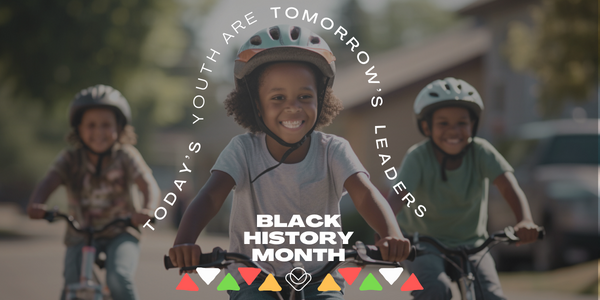
Black History Month is a time to reflect and honor the accomplishments, contributions, and challenges Black individuals have faced throughout history. It is also a time to think about what we are doing today to create a more hopeful and equitable future.
The core of our work at the Children’s Foundation is exactly that: to improve the health and well-being of children – to create equity, access, and a place where all kids can thrive.
By collaborating with expert community partners, we are implementing meaningful solutions that improve health equity for our young people now and for generations to come.
Here are four ways we are improving the physical and mental health of Black youth today, so they can become tomorrow’s leaders.
BRINGING SCHOOL NURSES TO STUDENTS
To support the physical health of young people attending Detroit Public Schools Community District, which includes nearly 40,000 Black students, the Children’s Foundation supports five schools so they can advocate for and address the health needs of its students.
School nurses not only help improve students’ physical and mental health but reduce chronic absenteeism. In the 2021-2022 academic year 76% of DPSCD students who had a nurse visit were able to return to class to continue learning.
When kids receive basic healthcare, it increases the likelihood of academic success, and that they will graduate from high school and attend college, earn higher wages, and grow up into healthy adults.
MEETING THE MENTAL HEALTH NEEDS OF YOUNG PEOPLE
Our country is facing a youth mental health crisis, but the challenges to receive care are even more significant for those who are Black. In fact, among Black youth ages 10-24 years old, suicide is the third leading cause of death.
We can address barriers to receiving mental health support for these groups by training trusted, competent, and culturally diverse professionals right in the school setting.
Since 2020, the Children’s Foundation has invested nearly $250,000 to bring mental health resources and education to Detroit Public Schools Community District – a school system whose student body is 82% Black via our partnership with TRAILS and City Year. Staff and AmeriCorps members working with students are trained to promote the emotional health of its students, while better identifying and supporting those with existing mental health concerns.
INCREASING ACCESS TO CLINICAL TRIALS FOR LOCAL CHILDREN WITH CANCER
It takes extra effort to overcome language, cultural, economic, and transportation barriers to help children access clinical trials, and to help them maintain their enrollment eligibility. With the Foundation’s philanthropic support, Clinical Research Associates are available to help kids with cancer get enrolled in state-of-the-art clinical trials at the Children’s Hospital of Michigan, eliminating barriers to care. This support helps in two ways – ethnically inclusive clinical trials generate better outcomes data, and kids who may not otherwise have access to clinical trials are receiving life-saving chemotherapy and immunotherapy treatments.
SUPPORTING OUR KIDS THROUGH SICKLE CELL DISEASE
Nearly 94% of Americans hospitalized for Sickle Cell Disease (SCD) are Black, as SCD occurs more frequently in this population. This life-long condition is one that requires a deep-level of understanding, life-style adjustments, and maintenance treatments to avoid other medical complications.The Foundation is supporting SCD kids at Children’s Hospital of Michigan (CHM) through two important efforts:
- Transportation to appointments: For patients with SCD, missing an appointment can lead to pain, anemia, infection, or even a stroke. Some kids come in twice per year, while others must come in as often as once a month. The Children’s Foundation enables transportation for SCD families to eliminate barriers to care and allow the child to live a healthier life.
- Transitioning into adulthood: Sickle Cell Disease is a chronic condition that requires positive disease management, which can be difficult for youth adjusting to living more independently. To enable a seamless transition from young person to young adult, the Children’s Foundation supports patient education tablets that connect patients to SCD web resources so they can manage adult care successfully.



